Choosing a blog niche is all about finding a balance between something that is of interest to you but also makes money.
But it’s easy to choose a “wrong” niche that will just burn you out or make no money at all.
Depending on your goals as a blogger, there are lots of different niches you should avoid.
This is a complete guide that not only shows you those “bad niches”, but also teaches you how to evaluate a niche.
Let’s jump in!
What Makes Blogging Niches Bad?
Choosing a niche in blogging is crucial.
It’s essential to focus on a particular topic and establish yourself as an authority in the niche. This is the only way to make blog posts rank high on search results and get visitors.
But not all niches are worth the effort. 🙂
Before I show you the niches I consider “bad”, it’s crucial to understand what makes niches bad in the first place.
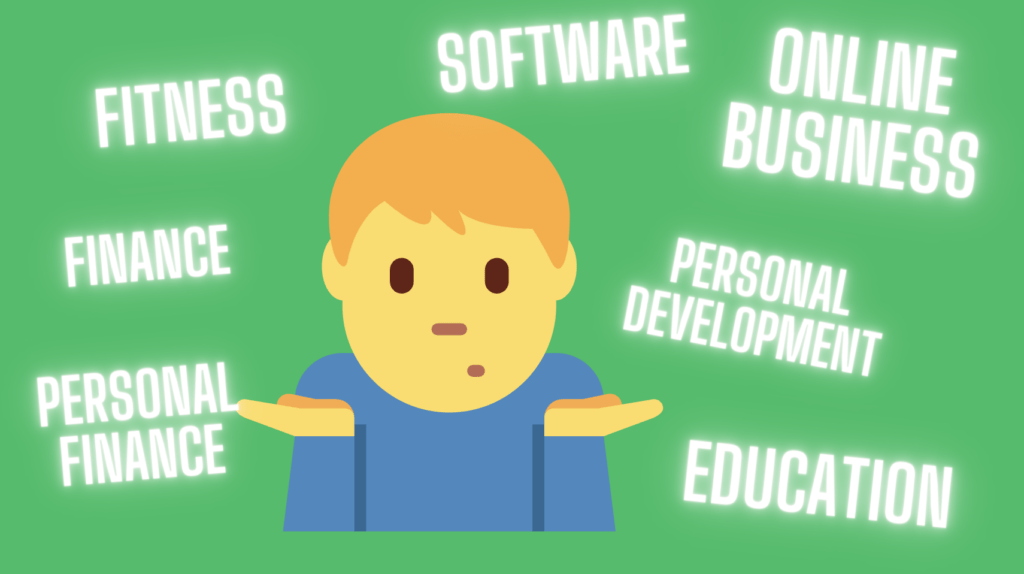
Consider niches like chess.
There’s nothing wrong with Chess, but the reality is that you’re not going to make much with Chess as your blogging niche.
When someone is looking for Chess advice, they’re not looking to buy anything. It’s hard to monetize a niche where there’s no buying intent.
On the other hand, consider a niche like Credit Cards.
There’s a ton of money to be made in the Credit Card space. But the market is overly saturated.
There are reputable review sites that post tens or hundreds of articles every day. Those types of sites are basically impossible to compete against alone.
Here are some key characteristics of a bad niche. I’ve also mixed in some useful example niches.
#1 Lack of Demand
A niche with little demand can make it difficult to attract readers and build a sustainable following.
If there is no significant interest or need for the content you offer, it can hinder your blog’s growth potential.
Consider a niche like Collecting Vintage Bottle Caps.
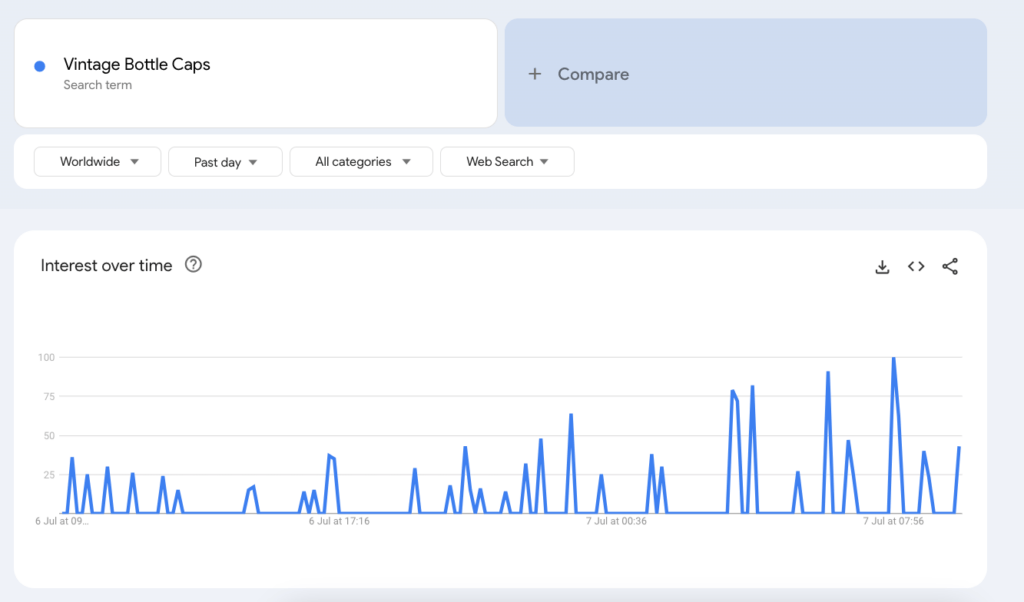
If the maximum monthly reach is in the thousands or tens of thousands, there’s no way you can make a living in that niche alone—even if you become the number-one resource in the niche.
#2 High Competition
A niche that is already saturated with tons of blogs can make it harder to stand out and gain visibility.
Intense competition can make it hard to stand out in your niche and establish your blog as a credible source.
For example, consider something like Cryptocurrencies.
With hundreds of thousands of reputable blogs against you, it’s really hard to make a dent in the space.
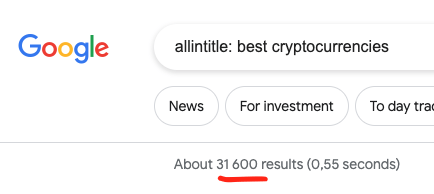
#3 Limited Monetization Opportunities
Some blogging niches have limited options for monetization.
If the niche doesn’t align well with common monetization strategies like advertising, affiliate marketing, or selling digital products, it can be challenging to generate revenue.
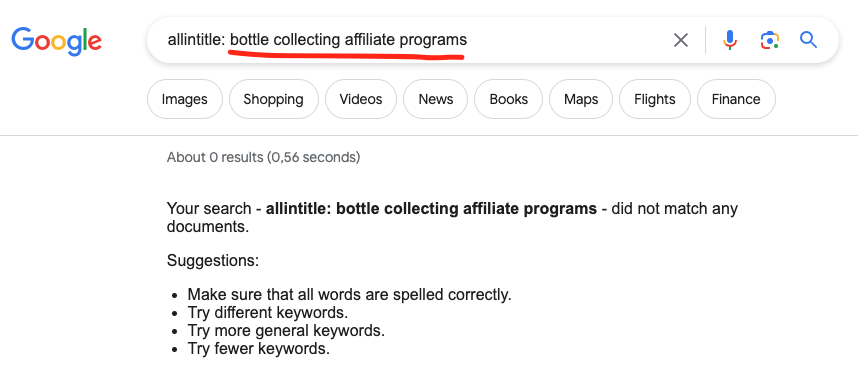
This is where you should not use your intuition or gut feeling.
By a hunch, you might think that “I’ll just throw in a couple of ads and earn from those, no matter the niche”.
But the reality is that some niches earn basically nothing from ads.
For example, programming is a bad niche when it comes to ads.
But how come? Programming is a valuable skill and a highly-paid job. Well, that has nothing to do with blog ad revenue.
When programmers read blogs, they’re in a hurry. They want to quickly solve their problem and bounce from the site. Thus, displaying ads is very ineffective. Those busy programmers won’t click the ads.
#4 Lack of Passion or Expertise
Choosing a niche only based on its potential profitability without having a genuine interest in the subject can lead to burnout or produce low-quality content.
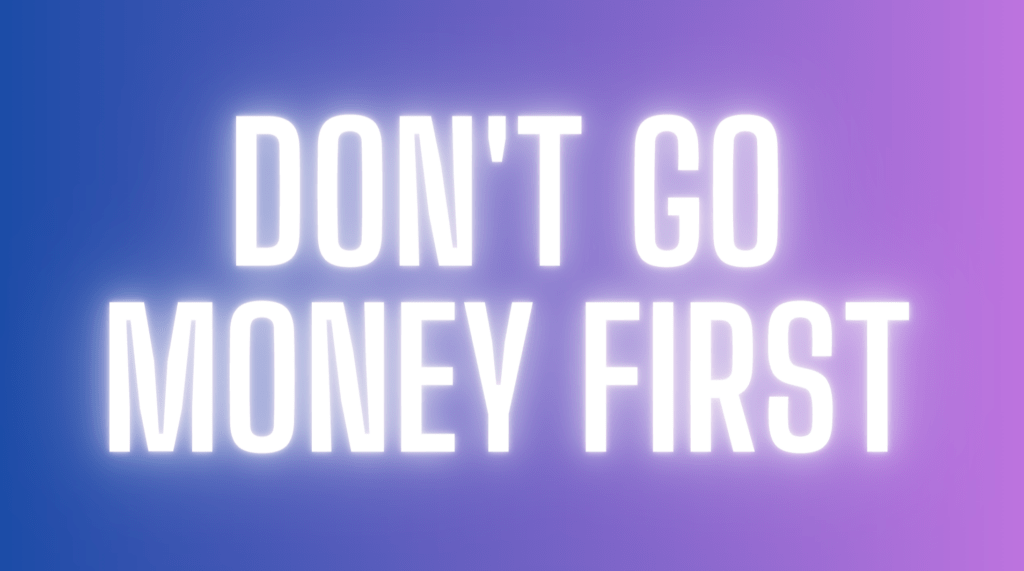
It’s crucial to choose a niche that, to at least some extent, aligns with your interests and knowledge to maintain enthusiasm and provide valuable content to your readers.
After all, you’ll be churning out hundreds of blog posts about that topic for the next months or even years to come.
Consider a niche like Student Loans. Surely, an awesome and lucrative niche.
But at least I can not see how I’d have the energy to write 500 posts related to Student Loans.
Of course, if you can hire someone else to do it for you, that’s great.
Also, if you have a desire towards one of these lucrative but “boring” niches, then go for it!
#5 Highly Time-Sensitive Topics
Topics that are dependent on current trends usually don’t have long-term viability.
If the niche revolves around temporary events, it can be challenging to sustain a consistent readership.
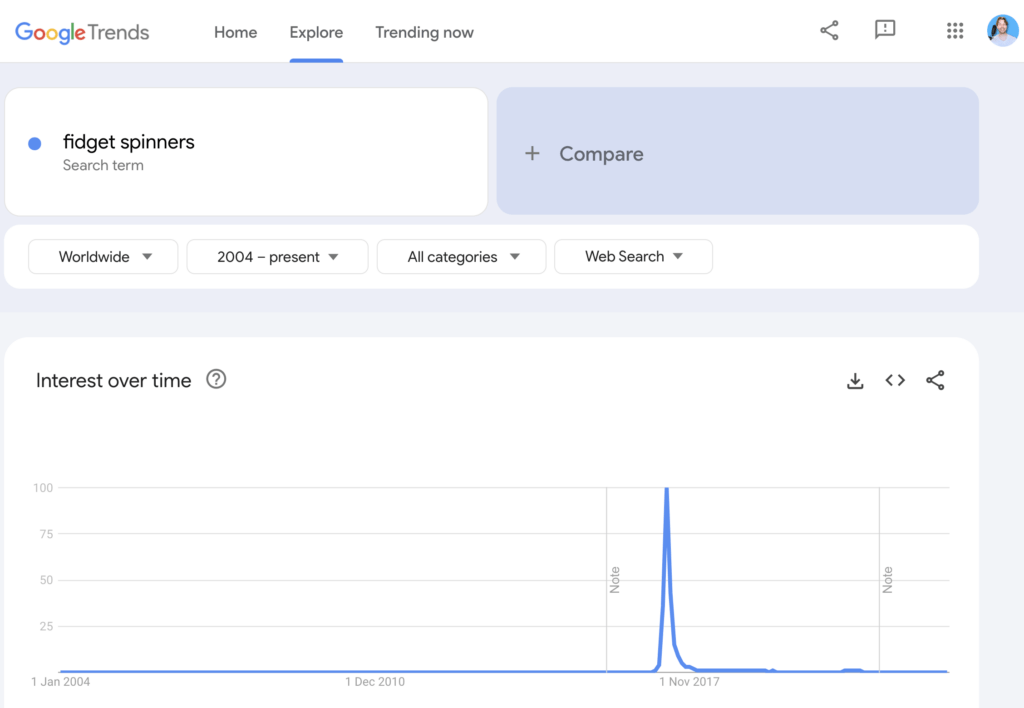
One of the main benefits of blogging is the ability to generate passive income.
But this is only possible if your blog posts rank high on search results for months or years to come.
If your niche is time-sensitive, you’ll only get traffic spikes that quickly die down. So if you don’t write today, you won’t earn tomorrow.
For example, consider niches like Celebrity News.
In this kind of niche, the content quickly becomes outdated as new information emerges. A successful blog post might become completely useless and outdated in mere hours.
#6 YMYL
YMYL stands for “Your Money or Your Life,” and it refers to a niche that focuses on topics directly impacting people’s financial well-being, health, or overall life circumstances.
Especially if you’re a newcomer to the blogging game, I would stay away from these types of niches.

YMYL niches are those where the information or advice provided can significantly impact a person’s safety, financial stability, health, or happiness.
Examples of YMYL niches include Personal Finance, Health and Wellness, Investing, and Medical Advice.
Search engines like Google have established higher standards for content in these YMYL niches.
They place a really high emphasis on experience, expertise, authority, and trustworthiness (E-E-A-T) when ranking and showing YMYL content in search results.
As a blogger in the YMYL niche, it is crucial to provide well-researched, accurate, and up-to-date information.
Demonstrating expertise, citing reputable sources, and maintaining transparency can help build trust with your audience.
Entering the YMYL niche is challenging due to the need for in-depth knowledge, expertise, and responsibilities.
5 Niches to Avoid
It’s always important to remember that “niches to avoid” is subjective.
In the end, there’s not really a “Good” or “Bad” niche as long as it’s legal and ethical.
If you treat your blog like a business and grow it to a big team of writers and marketers, you could do well in any competitive niche.
I think the truly bad niches are those that are doomed to fail, even if you had 1,000 people in your team. I’m talking about those niches that lack a big audience.
Anyways, let’s take a look at some concrete examples of niches you should avoid as a solo/newcomer blogger.
#1 General News
This niche is dominated by big and rich news agencies and popular media companies with large teams of professional writers.
It’s difficult for an individual blogger to compete.

Also, as stated earlier, those news posts aren’t ideal for blogging as they get outdated quickly.
So in the best-case scenario, your blog posts would be read by people for a couple of hours or days and then those posts would go completely under the radar.
#2 Health and Medical Advice
Unless you’re a licensed professional, it’s best to avoid giving health and medical advice due to liability issues.
There’s a great deal of scrutiny and responsibility involved in providing such information.
#3 Making Money Online
This niche is very saturated and also has developed a reputation for scams and misleading information.
This is because there are lots of people that teach money-making strategies without having any experience in those.
Unless you have proven methods and success stories, it’s hard to build trust with an audience.

So unless you’ve made a boatload of money online and you want to share your secrets with the world, it’s best to stay away from this niche.
For example, I would never have chosen blogging as my site’s niche, but because I’ve been doing it for years, I thought I have something actually valuable to share.
Make sure to watch my Free Blogging Masterclass.
#4 Cryptocurrencies
Similar to health advice, this niche comes with a high degree of experience and responsibility.
It’s hard to compete with the experts in the space. Then there’s the potential for legal repercussions if inaccurate information is shared.
To be honest, all finance-related sub-niches are usually really hard to find success in. This is because those are super competitive and also fall into that YMYL category.
#5 Product Reviews
Product reviews are one of the best ways to make money online. It’s a great affiliate marketing strategy that works in many niches.
But why on earth is it a bad niche then?

Because it’s not really a niche. Product Reviews are more of a blog post type than a niche.
If you just start a generic “Product Reviews” site to get free stuff or to make quick affiliate sales, you should reconsider.
A generic review site in multiple industries can have a hard time getting visitors.
These days, Google values “topical authority”. This means that before a blog ranks high on search results, it needs to be a trusted resource in a niche.
For example, if you wanted to rank high for product reviews about web hosting, you would need to establish yourself as an expert in the web creation space by writing hundreds and hundreds of informational posts about the topic.
#6 Every Niche Can Be “Bad”
Every niche is “bad” in some way.
If there’s money, there’s a ton of competition.
If there’s no money, you can’t make a living off of it.
So don’t get stuck analyzing the niche. You can always start from one niche and then cover another one (or expand the existing niche).
Just keep in mind that it takes months or years to become an authority in a niche. It’s not like “I tried this niche for 30 days but it didn’t work out”.
One thing I would do is check what others are doing and what kind of success they’ve found.
Unfortunately, there’s not much data on how much a site makes. But sometimes, website owners make their income sheets publicly available. Those are goldmines when determining if a niche is worth choosing or not.
My Story
My first blog’s niche was “Python Coding for Beginners”.
I narrowed it down from Education -> Coding -> Python Coding -> Python Coding for Beginners.
So it’s a very small subcategory in the vast Education niche.
And yes, coding is not a good niche at all. As a matter of fact, I think Programming is one of the worst niches when it comes to monetization. You can get millions of visitors but earn very small.
But I did it because I wanted to start somewhere and more importantly, I love programming and wanted to make the coding space better.
I later expanded the niche to software reviews as I had some authority in the tech niche.
These days, I run 4 profitable blogs and make a living out of it 🙂
So Which Niche Should You Choose?
Your goals are what truly define if a niche is something you should avoid.
If you want to start a side hustle to make extra income, avoid highly competitive topics like Trading, Crypto, or Credit Cards. You’d need to write tens or even hundreds of thousands of high-quality blog posts to find success—which is impossible when working alone.
Also, if you just want to “leave public notes” without any financial benefits in your mind, choose any niche that you’re passionate about. It could be your hobby or job.
But if you’re serious about blogging and want to earn a big buck, then it’s time to treat it like a business and forget about passions and 20-hour working weeks. Choose a competitive niche and hire a team to write tons of quality posts for the site.
And if you cannot hire a team, work super hard to cover a small sub-niche in your competitive main niche to make enough to start hiring those freelancers.
Wrap Up
Thanks for reading.
I hope you now know those niches you should avoid as a beginner or solo blogger.
Happy blogging!
